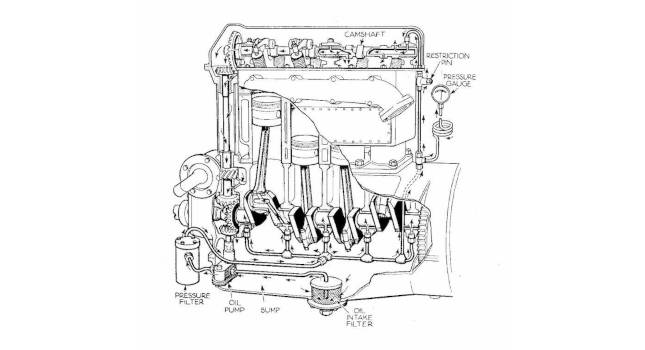Company lay off
Senior worker’s name on list
When a big order was cancelled, Plant Engineer Arthur Edelstein instructed Maintenance Supervisor Pete Braddock to lay off three men.
Braddock ran his eye down the roster and settled on a setup man, a mechanic, and a welder. Their names were posted on the bulletin board.
It didn’t take long for Setup Man Jeff Redmond to appear at his desk.
“You can’t lay me off.”
“Sorry, Jeff. I have no choice. Orders from the supreme command.”
“What about Jerry Rosen?”
“What about Jerry Rosen?”
“How come he’s still on the payroll. I have at least two years seniority over him.”
“Seniority isn’t the only factor involved.”
“What do you mean? The contract says…”
“The contract gives a high priority to seniority. But qualification is at least equally important.”
“I’m as well qualified as Rosen.”
“Not on the new Britons and Gridleys you’re not. You don’t have Jerry’s training and experience.”
Redmond refused to settle for this explanation.
Question : Can you lay off a senior employee and retain a worker with lower seniority?
Bodoni’s decision : “Redmond’s out of luck,” Plant Engineer Mark Bodoni told Braddock. “Contract Clause 957 spells it out. ‘When a work reduction is necessary, seniority will be a prime consideration, providing there are employees still on hand who are sufficiently qualified to perform the work of those being displaced.’ Case closed.”
A handy clause to have around.
Qualified job candidate
Would she stay long enough?
Administrative Aide Ellen Burnside had held a critical job in the maintenance department for nine years. One day she informed Maintenance Supervisor Ed Gulletsin that the family was relocating to California where her husband had been offered a job he couldn’t turn down. If dilemmas have horns this placed him right smack on top of them. Ellen handled an assortment of key tasks from auditing the freight bills and time records to compiling the monthly Personnel Performance Report.
“How are we ever going to find a replacement?” Gulletsin groused to his assistant.
“It won’t be easy,” Mike Murphy replied. “It’s been said no one is indispensable, but around here Ellen comes darn close.”
An ad was placed in the local paper. When a dozen applicants were interviewed, with not a single promising candidate in sight, Gulletsin decided to try his luck with an agency. After five candidates were seen without a likely replacement, he finally hit the jackpot. Number six, Mabel Rollins, seemed to have the potential the supervisor was looking for.
However, one thing concerned him. However qualified she appeared, she would need weeks or months of training before she would be able to replace Ellen effectively. Before hiring her he wanted to make sure she would stay long enough to warrant the costly investment of time. The problem was — Gulletsin couldn’t be sure — but to him she looked as if she might be pregnant.”
Like it or not, he decided, he would have to bite the bullet and find out. “Mrs. Rollins,” he said, “this is an important key job. Please level with me: Are you pregnant?”
“That’s none of your business,” she replied angrily. She jumped up from her chair and flounced out of the office.
Question : Was Gulletsin within his rights asking Rollins that question?
Carter’s response : “Not only wrong, but improper under EEOC guidelines,” Plant Engineer Vic Carter told Gulletsin. “Inquiring about pregnancy is a no-no. What you could have asked was, ‘How long do you plan to remain on this job?’ This is acceptable as long as the same question is posed to both male and female applicants.”
When holiday and vacation coincide
An executive meeting was held June 5 to determine how the company could best respond to a recent business decline.
“From the looks of things,” Plant Manager Jeff Dollowitz told the group, “the slump will continue through July and August.”
Other executives nodded assent.
“Why not shut down the plant for vacation the first two weeks of July,” Plant Engineer Tom Solomon suggested. “It could save us a bundle.”
“Good idea,” Dollowitz replied thoughtfully. His gaze swept the rest of the group. They all seemed to agree.
An announcement to that effect was posted on the bulletin board.
The plant was shut down as scheduled and resumed operation July 15th. The next payday occurred July 22nd. This brought maintenance department welder George Nadler and two other employees hurrying to Maintenance Supervisor Fred Lasker’s desk.
“What’s the problem?”
Nadler acted as spokesman. “We weren’t paid for the 4th of July.”
“You weren’t supposed to be paid,” Lasker replied. “The Fourth fell while the plant was shut down for vacation.”
“That’s a rip-off,” Nadler protested. “It’s no reason we should be screwed out of our holiday pay.”
Lasker shrugged. “I don’t make the rules; I just enforce them.”
Nadler threatened a grievance.
Question : Does the welder have a viable complaint?
Solomon’s ruling : “Pay the men for the Fourth,” Plant Engineer Ben Solomon decreed. “The right to receive holiday pay shouldn’t be abrogated by the company’s vacation period timing.”
McKuen vs. Mullen
Two maintenance department mechanics were working on a repair in the production department when Joe McKuen asked Art Mullen what he thought about what was happening in the world.
“The only thing I know,” Mullen replied, “was that Bush screwed up. He’s the worst president we had since Warren G. Harding.”
“You’re crazy,” McKuen snapped back. “Bush is one of the best presidents we ever had. He’s a born-again Christian in the world’s loneliest job. He’s dedicated to defending America and protecting our way of life.”
“Boy, are you mixed up. You don’t know what’s going on. He’s a loser.”
“That’s your opinion, moron. You’ve been brainwashed.”
“Oh yeah. And you’re a jerk. It’s guys like you…”
So the argument progressed, growing more inflamed by the minute. Both men had hothead tendencies and were soon having at each other. It started with a push and a counter shove. Before long they were exchanging blows with a crowd in attendance to observe the festivities.
By the time a group leader broke up the fight, McKuen had a bloody nose, and Mullen had a black eye. When Maintenance Supervisor Pete Charney appeared on the scene, the combatants weren’t the only ones whose temper was hot.
“You guys have had it!” Charney growled. “Fighting on the job and disrupting the work is a dischargeable offense in violation of the contract. You might as well punch out now.”
Question : Do you think termination is too harsh a penalty?
Dorfman’s ruling : When the termination notice was brought to Plant Engineer George Dorfman’s desk and he was filled in on the incident, he summoned Charney and the two pugilists to his office. Dorfman wasted no time on preliminaries.
“Fighting on the job is a dischargeable offense like Pete says,” he told the men. “But I see extenuating circumstances in this case. This country and the world are going through tough times, and it’s only natural to respond emotionally. Regarding your dispute, a lot of people take one side, and a lot take the other. A lot more are undecided. And millions get hot arguing about it. But it may help to keep one thing in mind: In some countries you would be tossed into jail or worse for openly expressing your opinion.
“So on the one hand, you deserve credit for standing up with passion for what you believe. On the other hand, you have to learn to keep your emotions under control.”
He turned to Charney. “Suspend these guys for three days.”
Company paying for off-hours training?
Maintenance Supervisor Harry Hannahan set down the report he had been scanning to give Tony Camino his full attention.
The Grade II Machine Repairman passed the paycheck he had just received to his boss. “I wasn’t paid for last Saturday.”
“Talk to me, Tony. Refresh my memory.”
“Last Saturday I spent six hours attending that training session on Instrument Maintenance and Repair. I got another two Saturdays to go.”
“I recall now. You’re not due compensation for that. Signing up for that course was voluntary.”
“Of course it was voluntary. It was outside regular working hours. But it’s still part of the job.”
“Not part of your job, Tony. You’re a machine repairman, not an instrument mechanic.”
“What difference does that make? I thought the company was supposed to encourage employees to advance.”
“Right. That’s why the opportunity to take this free course was made available.”
“It’s still not fair,” Tony groused.
Question : Does Tony have a valid gripe?
Chernoff’s verdict : “No Saturday pay for Tony,” Plant Engineer John Chernoff ruled. “As far as lack of compensation is concerned, three criteria apply to training outside regular hours. Enrollment must be voluntary. The trainee must perform no productive work for the company. And most important of all, the training must not relate to his regular job. Tony’s time investment is on his own. If he does well in the course it will add a good mark to his record and help put him in line for a better job later on. It’s his call to determine if the effort’s worthwhile.”
Make sure that final means final
Maintenance Foreman Chuck Kowalsky instructed his assistant, “Assign Anderson to the Number Two lab.”
“Anderson hasn’t come in yet.”
“Damn!”
Kowalsky glanced at his wrist. It was 8:26. The shift began at eight sharp.
“This is the fourth time he’s been late this month.”
“Add his absences to that,” his assistant cracked, “and he qualifies as the little man who wasn’t there.”
“That does it,” the foreman growled. “One more violation and he’s gone.”
When the electrician ambled in ten minutes later Kowalsky snapped, “I’ve had it with you. This is the last chance you’re getting.”
He handed Anderson a notice promising termination the next time an absence or lateness occurred.
Three weeks later the electrician missed another day without calling in. When he showed up the next day he received a 3-day suspension.
The suspension failed to sober him. Two weeks later he was absent again. This time he was fired. Anderson appeared at the foreman’s desk with Jake Ripley, the unit representative in tow.
“You can’t fire this man without advance warning,” Ripley protested.
“You have got to be kidding. He received a final warning about a month ago,” Kowalksky shot back.
“After which he received a suspension. That’s a long haul from termination. We’re not sitting still for this.”
Question : Is the foreman within his rights firing Anderson?
Brogan’s verdict : Reinstate Anderson,” Plant Engineer Bill Brogan instructed Kowalsky. “He’s been warned about his attendance so many times it’s no wonder he didn’t take it seriously. Give him one more final warning, and this time make sure that it’s final.”
War and the toll it can take on innocent people
How much of the world’s trouble and turmoil is attributable to mindless hatred? Electrician Grade A, Iraqi-born Muhammad Salah, would be a good person to ask.
Salah is a quiet family man who goes about his own business. Like many of his nationality, he is dark-skinned, swarthy, and wears a beard. He is a U.S. citizen and has lived 11 years in this country. Muhammad has a better-than-average performance record in the maintenance department.
This impresses his boss, Maintenance Foreman George Rudin, but has little, if any, effect on Thomas Shea, Sid Rudolf, and a few others of their ilk. Shea, et al, make Salah’s life on the job a living hell. They tease and taunt him with mindless epithets and insults directed at his nationality.
Salah refrains from responding to the abuse to which he is subjected. But being only human, like most of us, he has a breaking point. This occurred the day a defaced Iraqi flag was glued onto his locker.
Salah appealed to his boss for relief. Rudin told the harassed electrician he would “look into it” and properly conducted an investigation. It didn’t take him long to learn that Tom Shea had been the main perpetrator, and that it was Shea who had glued the flag to the locker.
Question : What action would you take?
Graham’s response : “A manager’s responsibility,” Plant Engineer Ed Graham told Rudin, “is to protect his people from all kinds of harassment, sexual, racial, age, religious, whatever. Instruct Personnel to prepare Shea’s termination pay.”
Can you bar union delegate from plant?
James Creedmore, a vice president of the union that represented the company’s bargaining unit employees, often visited the plant to check up on things. Creedmore didn’t see eye to eye on very much with Plant Manager Charles Dumont.
One day he got into a verbal battle with Dumont over a disagreement between a worker and his foreman. Creedmore sauntered around the manager’s desk, poked a finger into his chest and snarled, “You don’t have the brains you were born with.”
Dumont’s face flushed. “That’s it. You’re barred from this plant.”
“My job is to represent these people and that’s what I intend to do.”
Question : Can the union man be kept out of the plant?
Susskind’s verdict : The plant manager felt he was within his rights to bar Creedmore. But he gave Corporate Labor Attorney Ann Susskind a call.
The lawyer supported his mandate. “Cooperating with the union is one thing,” she said, “but even attempting to sustain a harmonious relationship has its limits. Aggressive behavior can be tolerated up to a point. When collective bargaining moves from across a table or desk to physical confrontation and abuse, it is time to take a stand.”
Moved back down
Twelve-year maintenance department employee Lead Carpenter Joe Finnegan had an above-average performance record. And with his seniority he was in line for promotion.
Thus when a section leader job opened up, Maintenance Foreman Jimmy Hartshuler picked Joe. Joe was as hardworking and savvy as anyone in the department.
It didn’t work out. Joe’s problem was that he was uncomfortable giving orders to his old bargaining unit buddies who formerly worked the line alongside him.
When Hartshuler broke the news to Joe that he would have to bump him back down the line, the carpenter was in one sense relieved. Except for one thing.
“The problem is I’m minus four months’ seniority.”
Question : Does Joe have a legitimate gripe?
Rankin’s verdict : “Add the four months to his seniority,” Plant Engineer Al Rankin instructed Hartshuler. “A clause in the labor agreement specifies that a temporary assignment to a management job shouldn’t reduce an employee’s seniority.”
Equal opportunity and equal training
In an effort to upgrade the company’s image, Plant Engineer Tom Traynor encouraged Maintenance Foreman Joel Justin to make all jobs as ‘sexless’ as possible. Thus, when an opening for Supply Room Attendant in Building Two was posted, Justin interviewed candidates and decided on general utility employee Mary Windham.
Justin turned out to be mistaken in his assessment of Windham. The training program called for three weeks. But before even one week elapsed, the supervisor decided he picked the wrong candidate. Nonetheless, he stretched the training out another two days, then he broke the bad news.
“It’s not fair,” she said. “The training program is supposed to be three weeks.
Question : Should Mary’s training time be extended?
Dunham’s decision : “Give her the full three weeks,” Plant Engineer Greg Dunham said. “Especially since we’re trying hard to uphold our image as an equal-opportunity employer, we should bend over backwards if necessary to treat women with the same consideration we give men.”
Switching to a lower-paying job
When Junior Grade Carpenter Ralph Mazorofsky was unexpectedly hospitalized, Maintenance Supervisor Jack Rose found himself in a bind.
Rose scanned the roster and couldn’t find another junior-grade carpenter who could be spared to take over the job.
Senior Grade Carpenter Bill Benson said, “I’ll pick up that job if you want.”
“Good deal,” Rose replied.
When Mazorosky returned to work, Benson went back to his regular job.
Payday rolled around. Benson took one look at his check and made a hightailed it to his boss’s desk.
“My check for last week is almost $12 short,” he complained.
Rose explained. “You switched to a lower-rated job.
“No way!” Benson protested. “I switched to do you a favor.”
Question : Should Benson be paid at his regular rate?
Turner’s decision : “Give him his regular pay for the week,” Plant Engineer Chuck Turner said. “The labor agreement requires this whether the transfer is mandatory or voluntary.”



